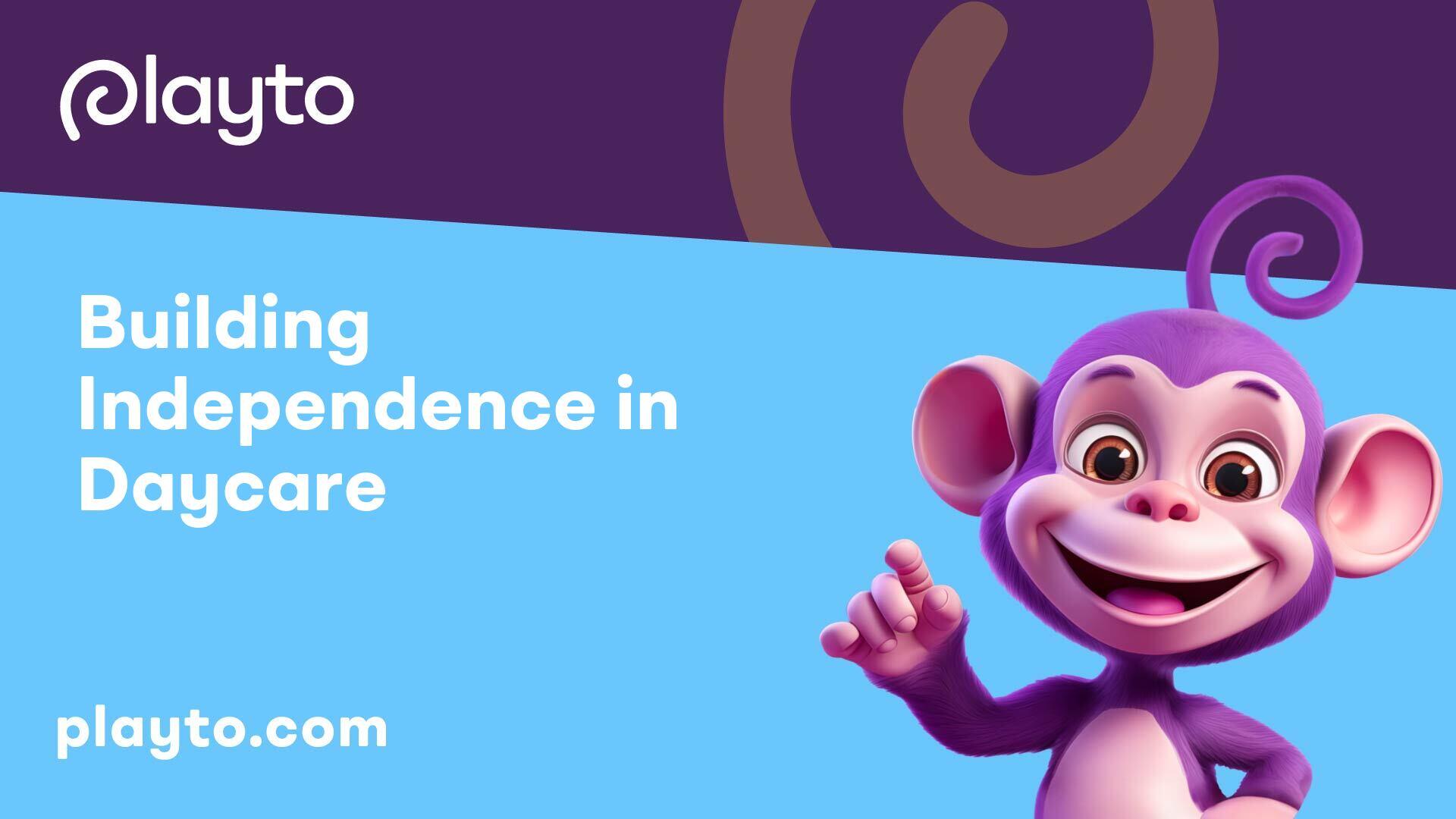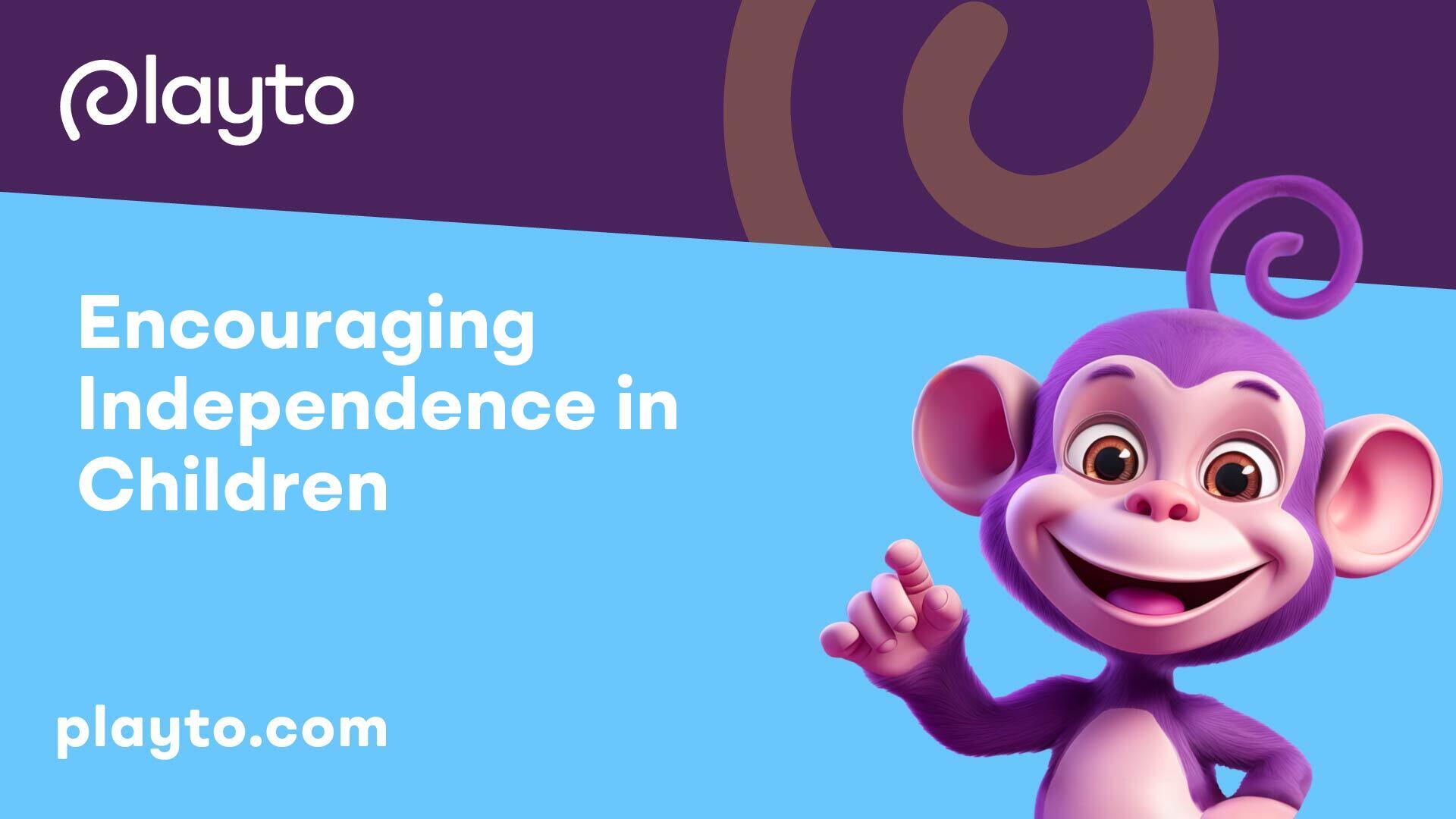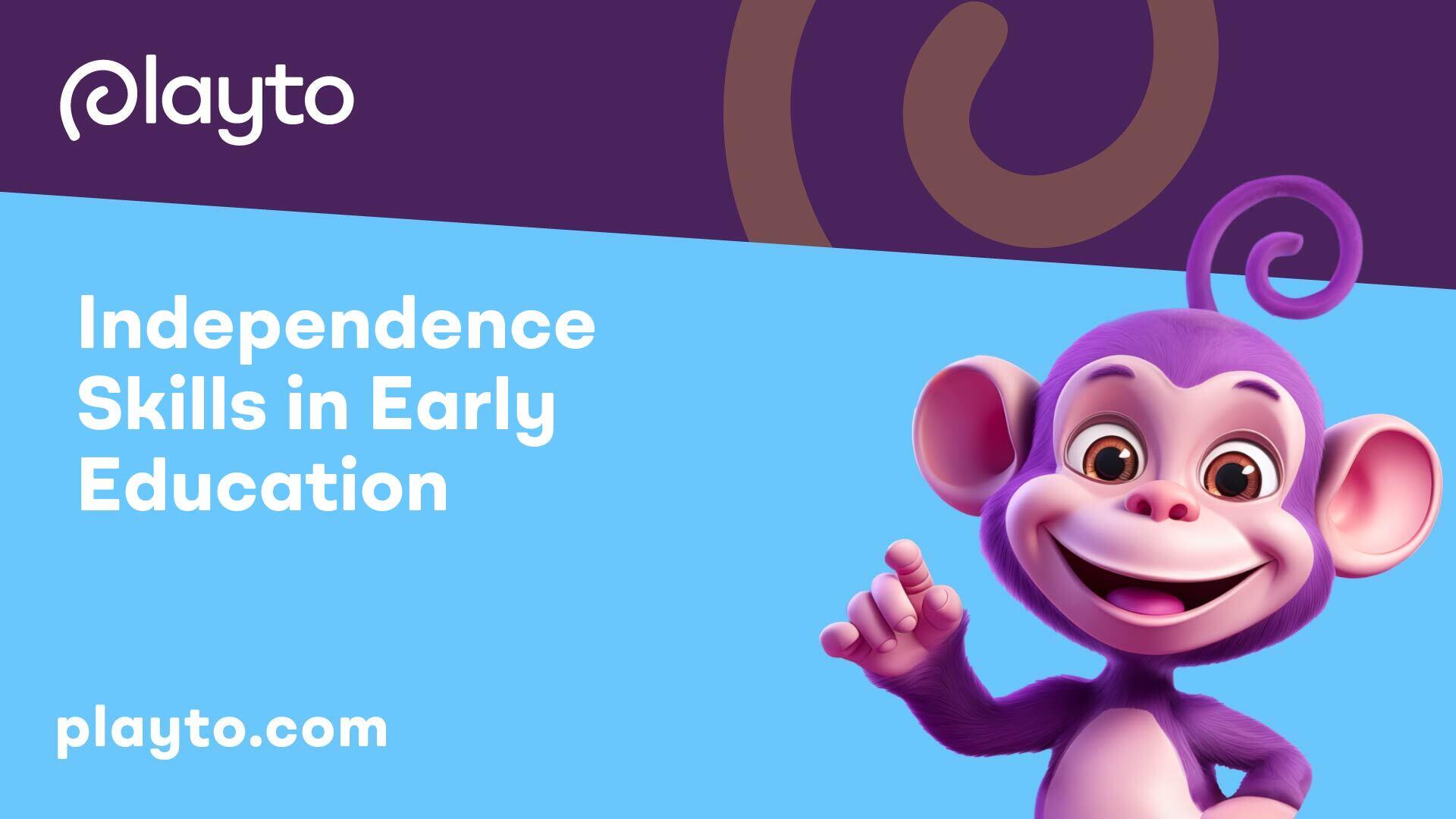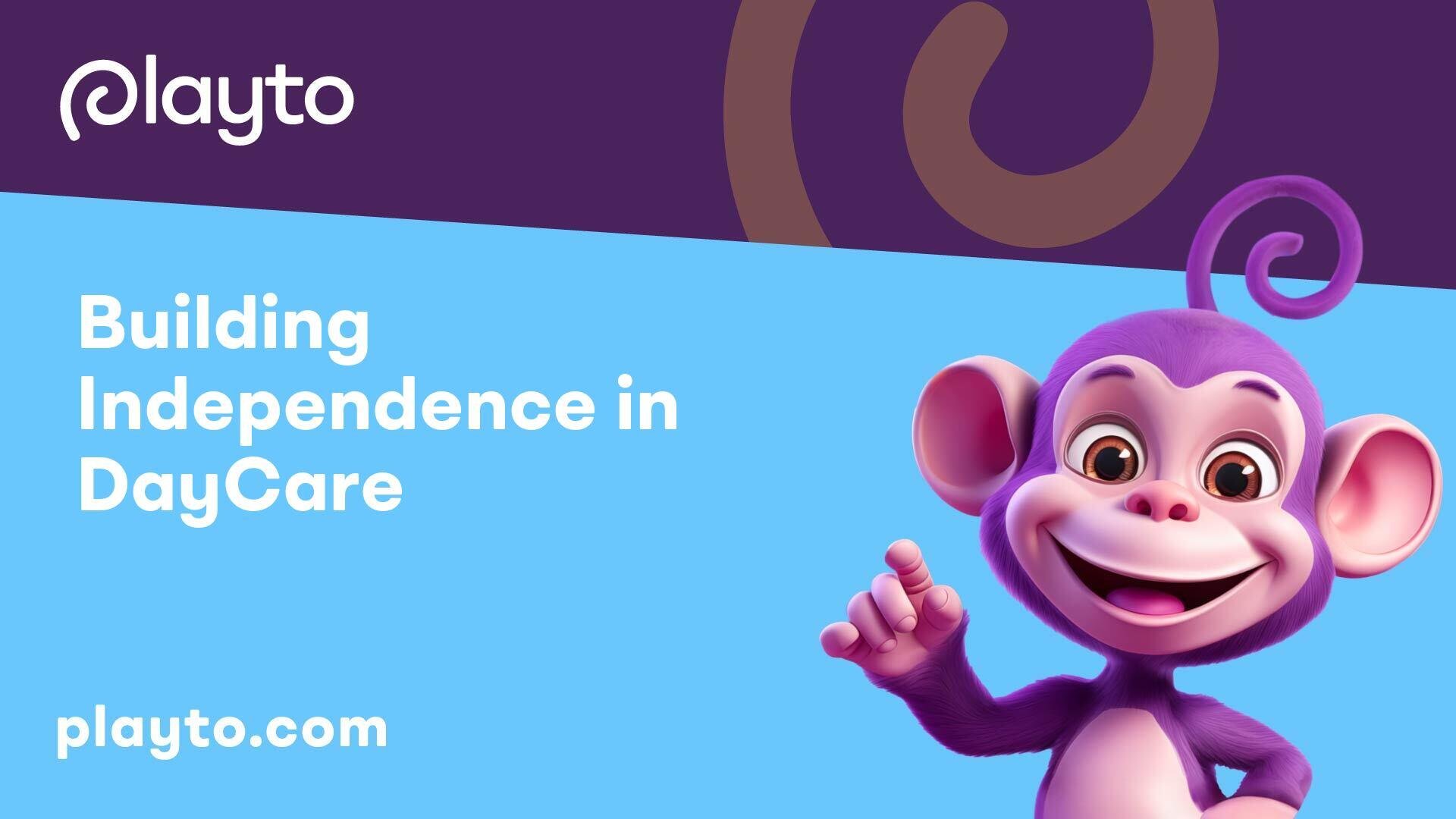
Building Independence in Daycare
In a daycare setting, the foundation of fostering independence in children is deeply rooted in the establishment of routines and the nurturing of relationships. These two core elements play a pivotal role in shaping a child's development and sense of self.
Importance of Routines and Relationships
When infants and toddlers are engaged in familiar activities and routines within a daycare environment, they not only build a sense of predictability but also form meaningful relationships with the individuals they interact with. This sense of familiarity and consistency helps children develop a strong sense of belonging, self-confidence, and security in their surroundings. It lays the groundwork for them to feel comfortable exploring and interacting with their environment, fostering early independence and autonomy in their actions.
Promoting Social and Emotional Development
In daycare settings, promoting social and emotional development goes hand in hand with building independence in children. Engaging environments that are predictable and conducive to positive adult-child interactions are crucial for nurturing children's social and emotional well-being. These interactions provide the emotional support and guidance needed to navigate social situations, regulate emotions, and build interpersonal skills.
By nurturing relationships with both peers and caregivers, children learn valuable lessons in empathy, cooperation, and communication. These foundational social and emotional skills not only support their current well-being but also lay the groundwork for healthy relationships and emotional intelligence in the future.
Creating a nurturing environment that emphasizes routines and positive relationships is key to building independence in daycare. When children feel secure and supported, they are more likely to explore, engage, and develop the confidence to take on new challenges, setting the stage for a lifelong journey of growth and self-discovery.

Encouraging Independence in Children
Encouraging independence in children is a vital aspect of early education, supporting their growth and development. By fostering a sense of autonomy and self-reliance, caregivers and educators play a pivotal role in shaping confident and capable individuals.
Benefits of Independence in Early Education
Promoting independence in early education through engaging activities like outdoor exploration, art and craft stations, and sensory play empowers children to become independent thinkers and learners, fostering their overall growth. When children are encouraged to make choices and explore their environment, they develop decision-making skills and a sense of responsibility. These early experiences lay a strong foundation for future academic success and social interactions.
By instilling a sense of independence, children learn to problem-solve, think critically, and navigate challenges with confidence. These skills not only benefit them academically but also in their personal and social lives. Embracing independence early on in education sets the stage for a lifetime of self-assurance and achievement.
Stimulating Environment for Critical Thinking
Providing opportunities for exploration, creativity, and decision-making in early education activities in daycare centers helps empower children to explore the world, observe nature, develop problem-solving skills, and nurture self-expression. Engaging children in hands-on and interactive experiences stimulates their curiosity and encourages them to think independently.
In a nurturing and stimulating environment, children are encouraged to ask questions, experiment, and discover answers on their own. By fostering a culture of curiosity and critical thinking, educators support the development of cognitive abilities and creative problem-solving skills. Such an environment not only boosts academic performance but also enhances children's confidence and resilience in the face of challenges.
By fostering independence and critical thinking skills in children from an early age, educators in daycare settings empower young minds to explore, learn, and grow, laying a strong foundation for their future success in education and beyond.

Independence Skills in Early Education
As children embark on their early education journey, building independence in daycare plays a crucial role in their holistic development. Empowering activities that encourage self-reliance and summer programs that offer enriching experiences are key components in fostering independence in young learners.
Empowering Activities for Independence
Promoting independence in early education through engaging activities like outdoor exploration, art and craft stations, and sensory play empowers children to become independent thinkers and learners, fostering their overall growth. By offering opportunities for exploration, creativity, and decision-making, daycare centers help children explore the world, observe nature, develop problem-solving skills, and nurture self-expression [1].
These activities not only enhance cognitive skills but also instill a sense of self-confidence and agency in young children. Encouraging them to take ownership of their learning and make choices independently sets a strong foundation for their future academic and social success.
Summer Programs for Enriching Experiences
Engaging summer daycare programs at institutions like Little Scholars Learning Academy aim to provide preschoolers with a balance of educational activities, outdoor adventures, and social interaction to ensure a memorable and enriching summer experience. These programs not only offer a break from the traditional academic routine but also create opportunities for children to explore new interests, build social skills, and gain independence in a fun and supportive environment.
Summer programs designed to promote independence in children often include a mix of structured learning activities, hands-on projects, and collaborative play. These experiences allow children to practice decision-making, improve problem-solving skills, and learn to navigate social interactions independently, all of which are essential for their development.
By incorporating empowering activities and enriching summer programs into early education, daycare centers play a vital role in nurturing independence in children. These experiences create a foundation for lifelong learning and equip young learners with the skills and confidence needed to navigate challenges and opportunities as they grow and mature.
Developing Self-Help Skills
In the realm of daycare, fostering independence in children through the development of self-help skills is paramount for their growth and confidence. Teaching children simple self-care routines and responsibilities can have a significant impact on their ability to navigate daily tasks autonomously. By instilling these skills early on, children are empowered to take initiative and explore their capabilities.
Teaching Self-Care and Responsibilities
Empowering children with self-care skills, such as feeding themselves, getting dressed, maintaining good hygiene practices, and engaging in simple chores, is a foundational step in promoting independence. These activities not only aid in their physical development but also play a crucial role in nurturing their self-esteem and sense of accomplishment.
Incorporating tasks that allow children to contribute to their own care cultivates a sense of autonomy and enables them to take charge of their well-being. Providing opportunities for children to practice self-care routines empowers them to develop essential motor skills and build confidence to explore new challenges.
Practical Ways to Foster Independence
Encouraging children to engage in responsibilities around the daycare setting and at home can significantly enhance their sense of independence [2]. Simple chores like tidying up toys, setting the table, assisting in gardening tasks, making their bed, and maintaining a clean space empower children to feel a sense of ownership and control over their environment.
By involving children in household activities early on, they learn the value of contributing to the family unit and develop a sense of responsibility. Through age-appropriate tasks, toddlers and young children can actively participate in daily routines, such as carrying their lunch boxes, organizing toys, and assisting with basic chores like putting away clean laundry or arranging their belongings.
In nurturing self-help skills through practical engagement, daycare providers play a pivotal role in scaffolding children's independence. By creating a supportive environment that encourages exploration and responsibility, children are motivated to take on new challenges and build a foundation for continued growth and autonomy in their developmental journey.
Cultivating Independence in Preschoolers
In preschool settings, fostering independence in children is a key aspect of their development. By nurturing autonomy and decision-making skills, children can gain confidence and a sense of authority over their surroundings, ultimately leading to greater independence. Two significant approaches to cultivating independence in preschoolers are nurturing their development through choices and encouraging learning through daily activities.
Nurturing Development Through Choices
Empowering preschoolers by offering them choices within appropriate limits can have a positive impact on their independence. Children who have the opportunity to make decisions, such as choosing their attire or selecting healthy snacks, develop crucial decision-making skills. This process provides them with a sense of control and responsibility, enabling them to feel more self-sufficient and capable of making choices independently.
By presenting options to preschoolers and acknowledging their decision-making abilities, caregivers and educators can contribute to the development of independence in children. Allowing children to have a say, even within predetermined boundaries set by adults, reinforces their sense of autonomy and self-reliance. Encouraging preschoolers to make choices within structured frameworks empowers them to navigate their environment with confidence.
Learning Through Daily Activities
Organizing daily activities that promote independence is another effective way to cultivate self-sufficiency in preschoolers. By integrating learning opportunities into everyday routines, children can develop essential life skills while engaging in fun and educational experiences. For instance, involving preschoolers in tasks like setting the table for snack time or organizing a storytelling session can encourage their independence and boost their confidence in their abilities.
Encouraging preschoolers to participate in daily activities not only enhances their practical skills but also instills a sense of responsibility and accomplishment. Through age-appropriate tasks and interactive learning experiences, children can learn to problem-solve, collaborate with peers, and take pride in their achievements. These daily activities provide a supportive environment for preschoolers to explore their interests, express creativity, and make choices that contribute to their overall development.
Supporting Independence in Children
Child care providers play a crucial role in supporting independence in children, fostering their growth and development in a daycare setting. By understanding the importance of nurturing independence in young learners, providers can empower children through observational learning and by providing opportunities for hands-on experiences.
Role of Child Care Providers
Child care providers serve as facilitators of independence in children, creating an environment that encourages autonomy and self-reliance. They play a vital role in guiding children towards becoming self-sufficient individuals by offering support and guidance as they navigate various tasks and challenges. By recognizing and acknowledging children's efforts towards independence, providers help instill a sense of confidence and pride in the children's accomplishments.
Empowering Children Through Observational Learning
Observational learning is an effective method for promoting independence in children. Child care providers can model self-help skills and positive behaviors, demonstrating tasks like dressing themselves, cleaning up after activities, or following daily routines. Children have a natural tendency to mimic behaviors they observe, and through this process, they learn how to perform tasks independently.
By providing opportunities for children to observe and engage in tasks themselves, child care providers can empower children to develop essential self-help skills and take on responsibilities. Encouraging children to practice tasks independently, such as feeding themselves, dressing, and tidying up after playtime, can boost their confidence and sense of accomplishment.
Incorporating observational learning into daily activities not only enhances children's independence but also promotes a sense of autonomy and self-assurance. By creating a supportive and nurturing environment that values and fosters independence, child care providers play a significant role in shaping children's growth and development during their time in daycare.
By embracing the principles of observational learning and providing consistent support, child care providers can help children build a foundation of independence that will benefit them both in the daycare setting and as they continue to grow and learn. Through guidance, encouragement, and positive reinforcement, providers can inspire children to embrace their independence and take on new challenges with confidence.
Strategies for Fostering Independence
In the realm of daycare, fostering independence in children is paramount for their overall development. Two crucial strategies that contribute to building independence in daycare settings are establishing consistent routines and providing structured choices.
Establishing Consistent Routines
Consistent routines play a significant role in nurturing independence among children in daycare settings. When infants and toddlers are exposed to familiar activities and routines, they not only develop relationships with those around them but also cultivate a sense of belonging and self-confidence [6]. This predictability allows children to anticipate daily events, gradually learn to take on responsibilities without constant assistance, and feel more confident in navigating their environment.
At Little Scholars Learning Academy in NYC, engaging summer daycare programs offer preschoolers a blend of educational activities, outdoor adventures, and social interactions to create a memorable and enriching summer experience. By incorporating these routines into daily activities, children are empowered to explore the world, observe nature, enhance problem-solving skills, and express themselves with confidence.
Providing Structured Choices
Empowering young children to make decisions through structured choices is another effective strategy for promoting independence in daycare settings. By offering choices such as selecting pajamas, healthy snacks, and preferred play activities, toddlers and twos can begin to exercise their decision-making skills and cultivate a sense of autonomy.
Encouraging children to tackle challenges, solve problems, and engage in projects not only promotes independence but also nurtures perseverance and essential skills like creativity and critical thinking [7]. By allowing preschoolers to make age-appropriate choices, such as deciding what to wear or selecting a healthy snack, providers empower children to feel in control of their environment and foster independence.
By establishing consistent routines and providing structured choices, daycare providers in New York can create an environment that supports and encourages children's independence, ultimately laying a strong foundation for their growth and development.
Enhancing Independence in Preschoolers
In the journey of building independence in daycare, one of the key aspects is enhancing independence in preschoolers. This involves encouraging problem-solving skills and setting up independence-friendly environments to foster self-reliance and confidence.
Encouraging Problem-Solving Skills
Encouraging problem-solving skills in preschoolers is paramount to their overall development. It involves refraining from immediately providing solutions to challenges they encounter. Instead, parents and caregivers can ask open-ended questions that prompt critical thinking and empower children to find solutions independently.
By allowing children to grapple with problems and guiding them through the process of thinking through solutions, you are nurturing their problem-solving abilities. This approach not only equips preschoolers with vital skills but also boosts their confidence in tackling obstacles they may face.
Setting up Independence-Friendly Environments
Creating independence-friendly environments in daycare settings plays a significant role in nurturing self-sufficiency in preschoolers. Providing children with choices within predetermined limits allows them to feel empowered and capable of decision-making.
Moreover, involving children in daily activities, such as cooking or organizing, can further enhance their sense of control, confidence, and skill acquisition. Participating in tasks fosters responsibility and self-reliance, key attributes for building independence.
Offering challenges and project-based activities also stimulates independence by encouraging perseverance, creativity, and problem-solving skills. By praising children's efforts and providing opportunities for independent work, parents and caregivers can cultivate independence and self-esteem in preschoolers.
In addition, child care providers can play a crucial role in supporting the development of self-help skills in preschoolers. By facilitating age-appropriate experiences and offering appropriate guidance, providers help children acquire essential self-help skills necessary for their growth.
By encouraging problem-solving skills and creating independence-friendly environments, daycare providers and caregivers can empower preschoolers to develop the confidence and abilities needed to navigate challenges and tasks independently, setting a strong foundation for their future independence and success.
References
[2]: https://stride.com.au/ways-to-encourage-self-help-skills-in-children/
[3]: https://childcare.extension.org/ways-to-encourage-self-help-skills-in-children/
[4]: https://www.naeyc.org/our-work/families/growing-independence-tips-parents-toddlers-and-twos
[5]: https://www.eocdcs.org/fostering-independence-in-preschoolers-strategies-for-success-at-school-and-home/
[6]: https://eclkc.ohs.acf.hhs.gov/quienes-somos/articulo/importance-schedules-routines
[7]: https://childmind.org/article/how-to-build-independence-in-preschoolers/
